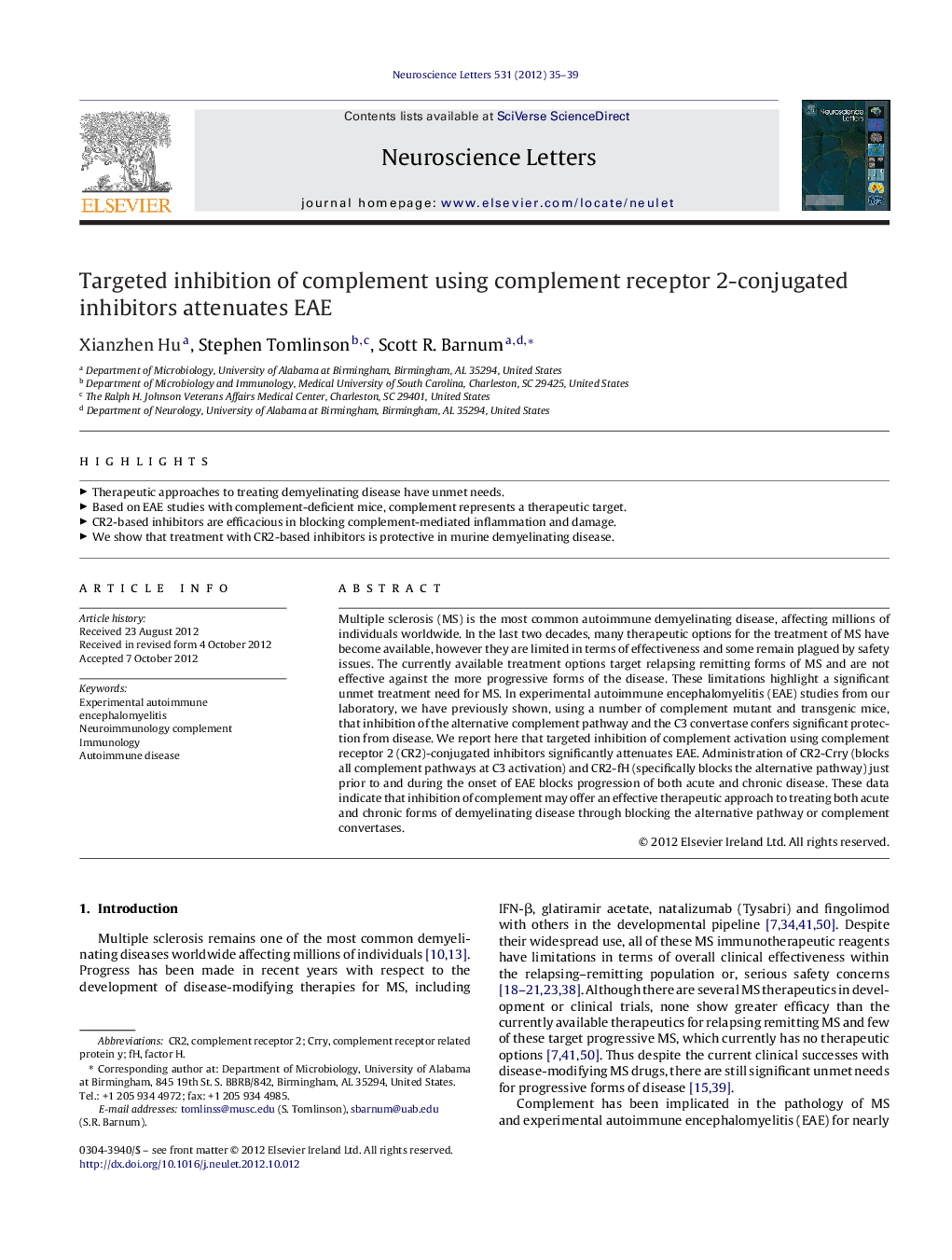| کد مقاله | کد نشریه | سال انتشار | مقاله انگلیسی | نسخه تمام متن |
|---|---|---|---|---|
| 6283759 | 1296634 | 2012 | 5 صفحه PDF | دانلود رایگان |

Multiple sclerosis (MS) is the most common autoimmune demyelinating disease, affecting millions of individuals worldwide. In the last two decades, many therapeutic options for the treatment of MS have become available, however they are limited in terms of effectiveness and some remain plagued by safety issues. The currently available treatment options target relapsing remitting forms of MS and are not effective against the more progressive forms of the disease. These limitations highlight a significant unmet treatment need for MS. In experimental autoimmune encephalomyelitis (EAE) studies from our laboratory, we have previously shown, using a number of complement mutant and transgenic mice, that inhibition of the alternative complement pathway and the C3 convertase confers significant protection from disease. We report here that targeted inhibition of complement activation using complement receptor 2 (CR2)-conjugated inhibitors significantly attenuates EAE. Administration of CR2-Crry (blocks all complement pathways at C3 activation) and CR2-fH (specifically blocks the alternative pathway) just prior to and during the onset of EAE blocks progression of both acute and chronic disease. These data indicate that inhibition of complement may offer an effective therapeutic approach to treating both acute and chronic forms of demyelinating disease through blocking the alternative pathway or complement convertases.
⺠Therapeutic approaches to treating demyelinating disease have unmet needs. ⺠Based on EAE studies with complement-deficient mice, complement represents a therapeutic target. ⺠CR2-based inhibitors are efficacious in blocking complement-mediated inflammation and damage. ⺠We show that treatment with CR2-based inhibitors is protective in murine demyelinating disease.
Journal: Neuroscience Letters - Volume 531, Issue 1, 30 November 2012, Pages 35-39